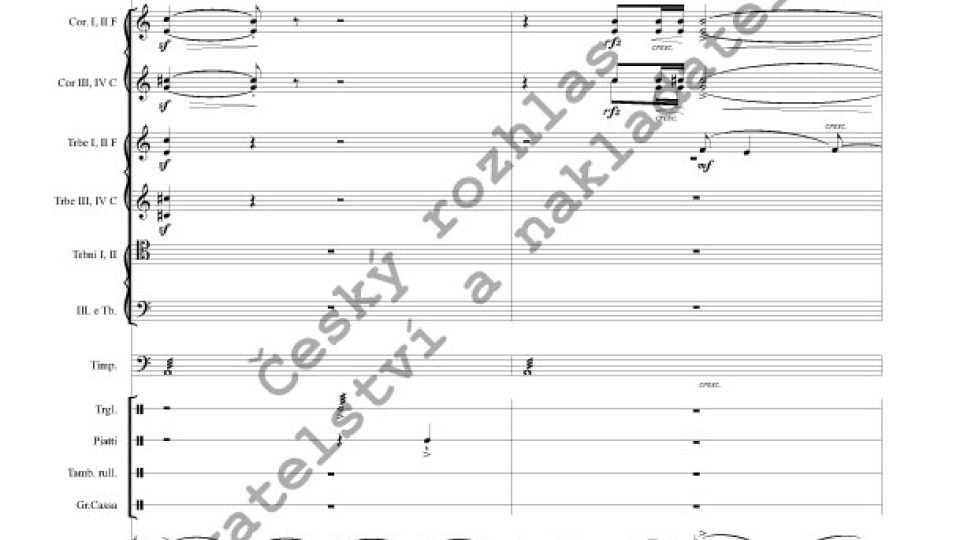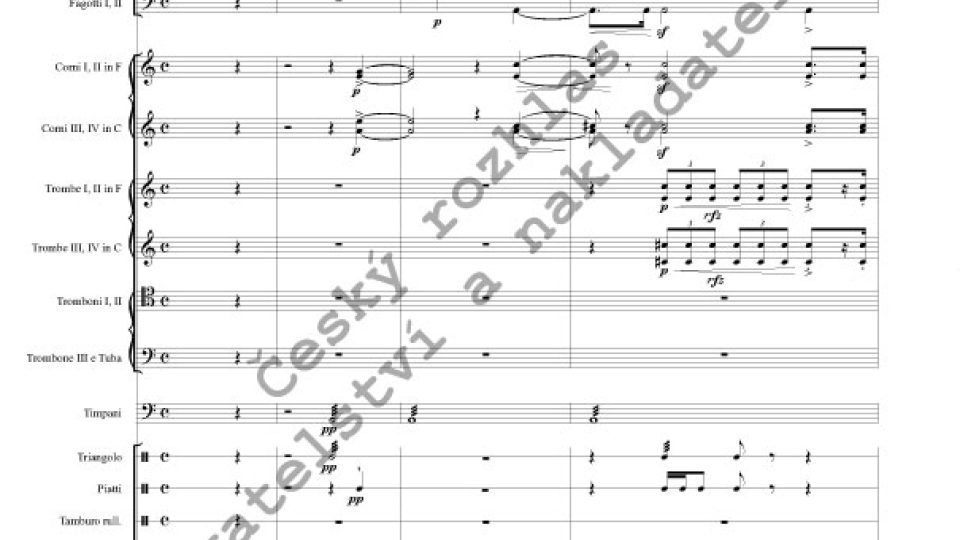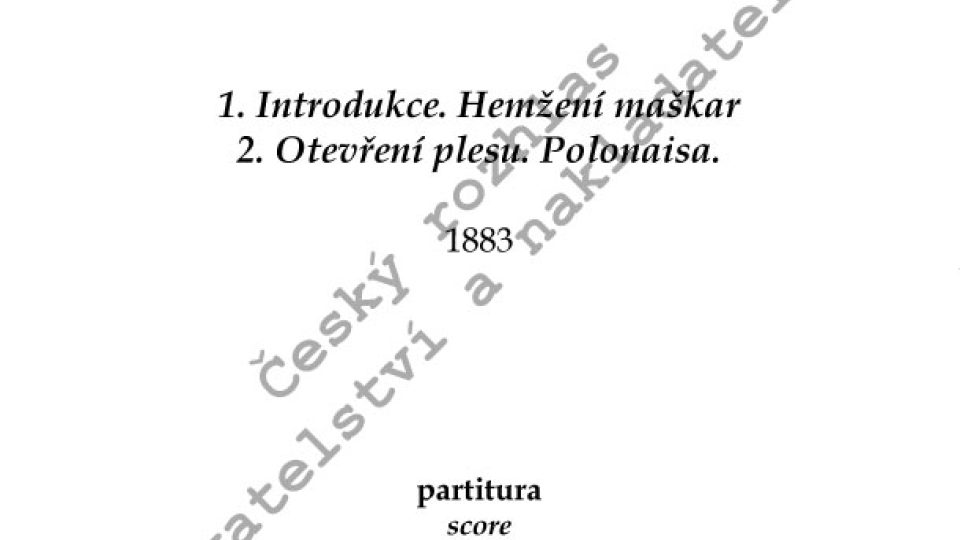Prague Carnival - Bedřich Smetana
The Prague Carnival belongs to Bedřich Smetana’s (1824 to 1884) last works. Having finished his 2nd String Quartet (in March 1883), a devastating personal confession of the deaf composer who was well aware of the mercilessly advancing mental illness, Smeatana started his two last opuses: The Prague Carnival and the opera Viola. Neither, however, was ever to be finished.
Judging by the preserved correspondence, Smetana had been considering the idea of a “large symphonic poem entitled The Prague (or Czech?) Carnival” already from the year 1880. His original intention was that of an extensive cyclic orchestral work, where – as Smetana mentions in a letter to Ludevít Procházka from 25th February 1880 – “not only…Czech dances but also many a character for example from my operas would appear. I think the idea is not at all bad, the genre and the form innovative; I hope it could draw attention and hopefully also prove to be profitable.” The initial conception of the whole work was stylistically to draw on the cycle of Czech Dances (1877, 1879); only here did the composer intend to develop the idea of a cyclic organization of dances on the level of full-scale symphonic poems or fantasias similar to those of the My Country cycle. The admirable idea, however, remained but a fragment, the only finished pieces being the Introduction and Polonaise (a scene of the whirling carnival dance and the initial dance of a ball). The compositional structure of the only finished part of the Carnival possibly uncovers the intended structural outline of the whole cycle: the dance element in each of the remaining parts should probably focus on a specific dance form, which, however, would not represent the main idea or intention of the piece. It should serve merely as a platform that would enable the development of the lyrical or epical scenes or of the musical ideas depicting the specific characters.
The style of the fragment is close to that of Smeatna’s innovatory period of the 1860s, represented by such works as the Macbeth and the Weird Sisters piano sketch or the symphonic poems Richard III, Wallenstein’s Camp, and Hakon Jarl. In the polonaise, the composer made use of a 48-bar motif he had sketched in his Motif Notebook already in 1858.
The score of the Introduction and Polonaise was finished on 14th September 1883. The premiere of the piece, however, was not attended by the diseased composer, even though it took place on the occasion of his 60th birthday on 2nd April 1884. The work met with considerable controversy. Smetana’s friends are reported to have labelled it depressing, and the composition was put aside as a failure or even as a decadent work for a long time to come. The two main reasons for this misjudgement lay in the extraordinary structure and style of the music and in the many mistakes in the score. It contained both obvious slips of the pen on the part of the copyists as well as errors that prevented the composition to be performed correctly.
The Prague Carnival was later rediscovered mainly thanks to Dr. Josef Theuer and Karel Kovařovic. Theuer painstakingly revised the score in the 1890s and purged it of the slips and ambiguities. He also refuted the changes to the score made by the first conductor of the piece, Mořic Anger, set the music for piano four hands, and engaged the conductor Karel Kovařovic to take interest in the work. Kovařovic in turn prepared his own score, where he clarified the ambiguities of Smetana’s autograph, performed some instrumentation changes, and conducted this arrangement of the composition with considerable success in two concerts in April 1907. In October 1918 also the original score of the Carnival, where only the obvious slips had been corrected, was rediscovered, and both the versions have been performed in concerts ever since.
The current edition of the score corresponds with the original version and is based on the critical Study Edition of B. Smetana’s Work, Orchestral Compositions II (Studijní vydání děl B. Smetany, Orchestrální skladby II), Prague 1952.
Other compositions by Bedřich Smetana published in Czech Radio:
Louise's polka, From student's life, Jiřinková polka - Bedřich Smetana/instr. Iša Krejčí
Scenes from Macbeth - Bedřich Smetana / instr. Otakar Jeremiáš
Parts only for hire at nakladatelstvi@rozhlas.cz




